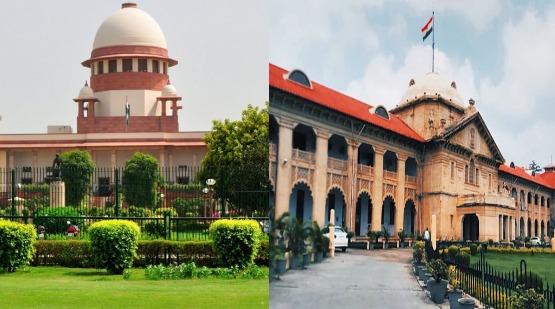
The Supreme Court recently imposed ₹50,000 costs on the Uttar Pradesh government for challenging Allahabad High Court order which had directed it to pay gratuity to a deceased employee’s wife.
A division bench of Justice MR Shah and Justice BV Nagarathna took exception to the State challenging such cases before the Supreme Court resulting in the aggrieved person being denied the compensatory amount.
“We deprecate the practice of a State filing such cases before the Apex Court. Hence the appeal is dismissed with cost of ₹50,000 payable by the appellant to the respondent within a period of four weeks from today,” the bench ordered.
According to the facts of the case, the respondent’s husband has been working as a lecturer since July 2, 2001. He died in service on August 11, 2009. The respondent then applied for payment of gratuity due to her deceased husband, but her application was denied on the grounds that the respondent’s husband did not opted for retirement at the age of 60 while in service.
In response, the respondent-wife moved the High Court, which granted the plea of the wife and directed the State to estimate the amount payable to the respondent’s husband as gratuity, despite the fact that the her husband had not opted for retirement at the age of 60.
Then regarding this, the State moved the Supreme Court.
The State contended that the High Court failed to properly consider the fact that the deceased employee did not exercise the option of retirement and, as a result, the benefit of death-cum-retirement gratuity could not be sanctioned to the respondent-wife of the deceased employee.
The respondent, on the other hand, stated that under a government order dated September 16, 2009, the deceased husband was entitled to exercise the option to retire at the age of 60, which was available until July 1, 2010. However, he died on August 11, 2009, before he could exercise the option.
As a result, it was argued that, in light of the unusual facts and circumstances, where the deceased employee died before the due date for exercising his option to retire, his wife would be entitled to the benefit of death-cum-retirement gratuity, and the High Court did not err in ordering the same.
The Supreme Court noted that, according to the government order dated September 16, 2009, the deceased had until July 1, 2010, to exercise the option of retiring. However, he died before the government’s order. Given these facts, the bench determined that the respondent was entitled to the deceased’s gratuity.
Therefore, the bench dismissed the State’s appeal and imposed Rs 50,000 as costs on the State to be paid to the respondent.




